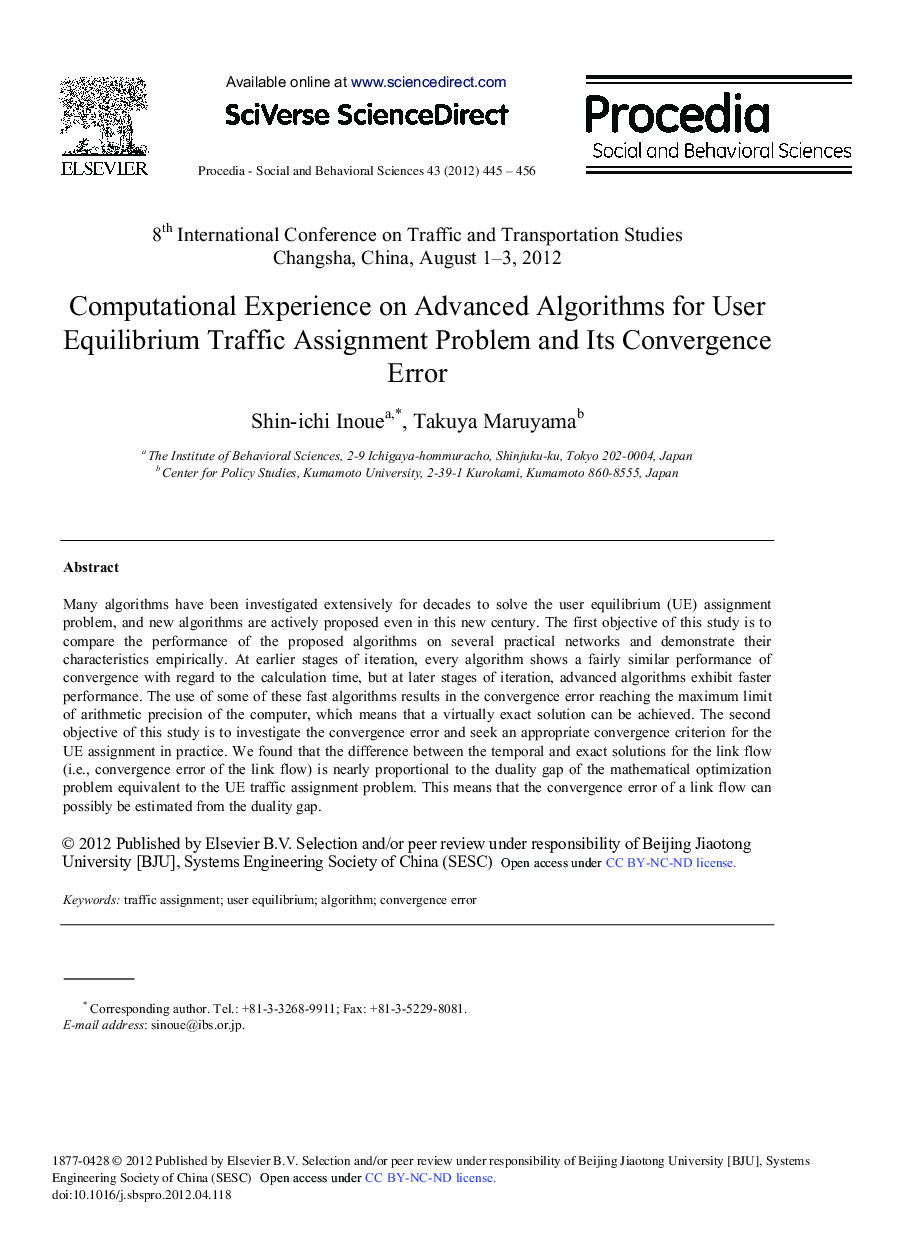| Article ID | Journal | Published Year | Pages | File Type |
|---|---|---|---|---|
| 1122127 | Procedia - Social and Behavioral Sciences | 2012 | 12 Pages |
Many algorithms have been investigated extensively for decades to solve the user equilibrium (UE) assignment problem, and new algorithms are actively proposed even in this new century. The first objective of this study is to compare the performance of the proposed algorithms on several practical networks and demonstrate their characteristics empirically. At earlier stages of iteration, every algorithm shows a fairly similar performance of convergence with regard to the calculation time, but at later stages of iteration, advanced algorithms exhibit faster performance. The use of some of these fast algorithms results in the convergence error reaching the maximum limit of arithmetic precision of the computer, which means that a virtually exact solution can be achieved. The second objective of this study is to investigate the convergence error and seek an appropriate convergence criterion for the UE assignment in practice. We found that the difference between the temporal and exact solutions for the link flow (i.e., convergence error of the link flow) is nearly proportional to the duality gap of the mathematical optimization problem equivalent to the UE traffic assignment problem. This means that the convergence error of a link flow can possibly be estimated from the duality gap.
